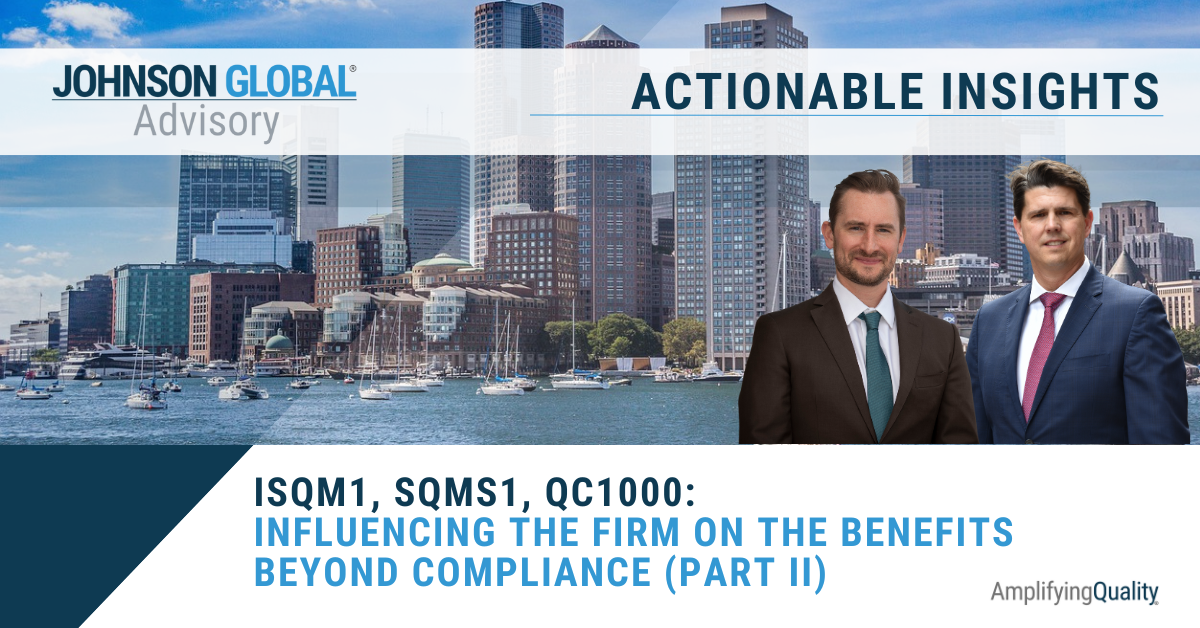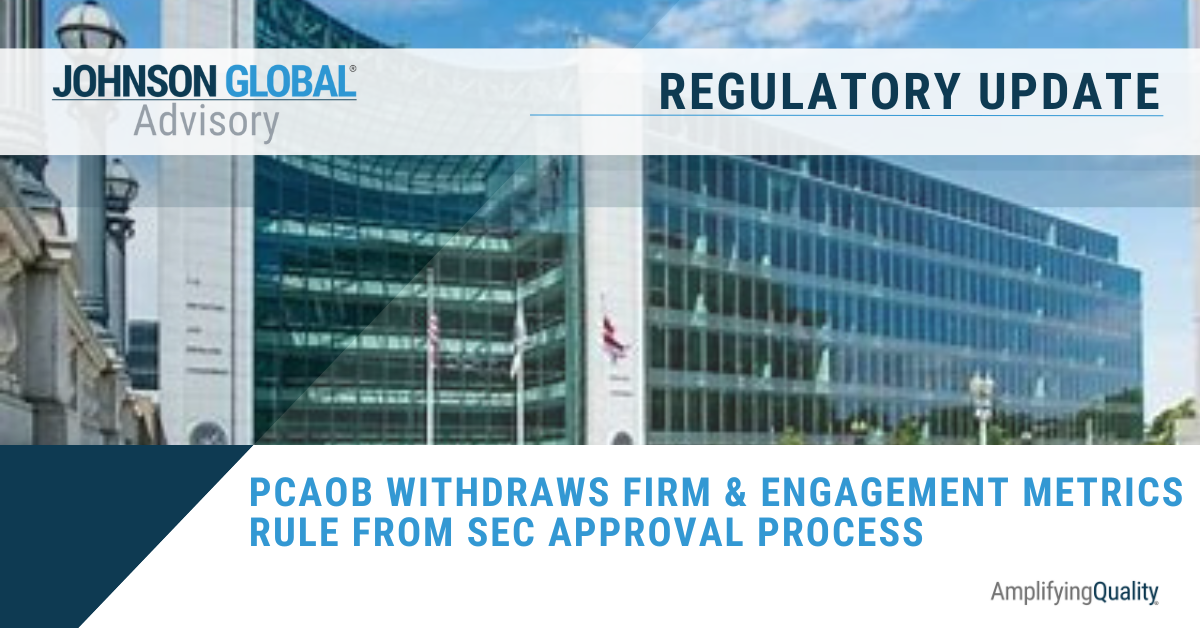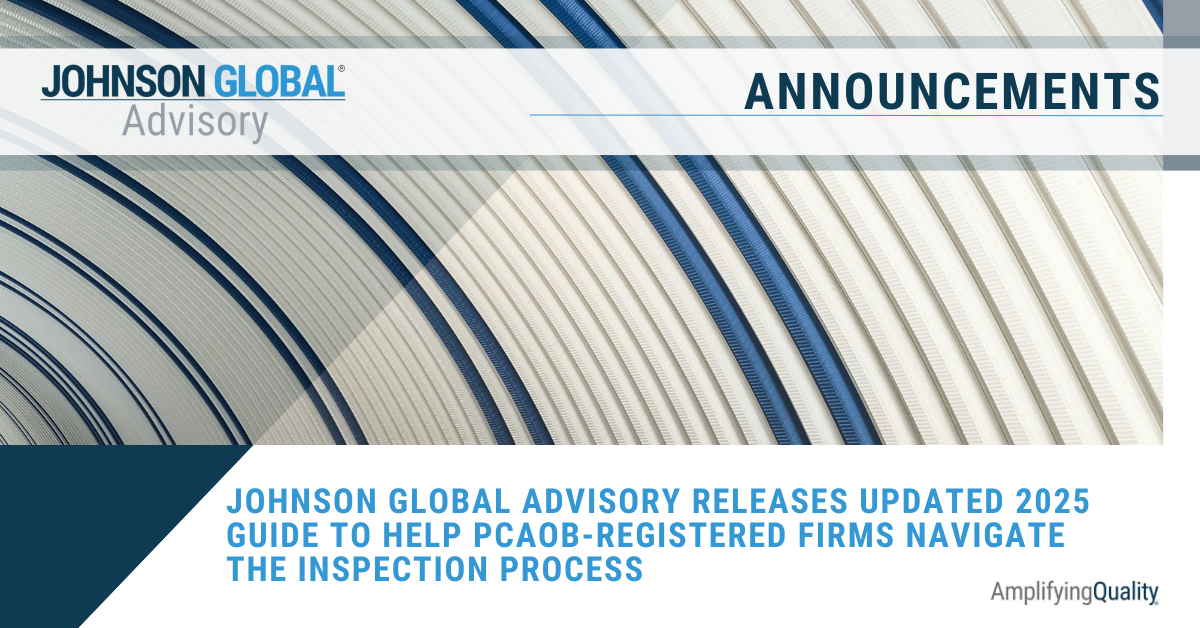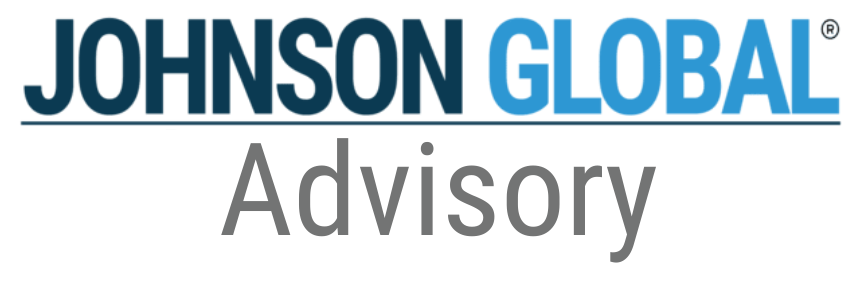Weathering the Storm: Auditing Going Concern in an Age of Economic Uncertainty

It is not the first economic crisis and invariably, it won’t be the last, but it is certainly unique. As a result of measures intended to prevent the spread of COVID-19, this pandemic has halted, almost overnight, entire economies around the world.
While the headlines are numerous and shocking, we aren’t here to talk about economic or healthcare policy. Instead, let’s talk going concern. Both FASB accounting and PCAOB auditing standards require management and the auditors, respectively, to consider a company’s ability to continue as a going concern. The concept of going concern is the ability for a company to continue operating for a reasonable period of time, not to exceed one year beyond the date of the financial statements being audited.
In more “normal” circumstances, there are traditional indicators when there is doubt about an entity’s ability to continue as a going concern. These include when a company operates at a loss with negative cash flows, has working capital deficiencies or has significant accumulated losses over time. Management and its auditors may also look to recent economic factors, new regulations, and client-specific factors, such as the loss of significant customer accounts. However, we are not operating in a “normal” circumstances anymore.
In February 2020, “normal” disappeared as the economy began to plummet. Companies from all industries started changing their 2020 earnings guidance. Conversations of furloughs, decreased demand, and supply-chain interruptions started circulating in the headlines.
All of a sudden, less than a month since the start of state and national lockdowns within the United States, companies that might have had positive cash flows, profitable results, strong customer demand and solid supply chains could not make current payments like April rent. Strong balance sheets eroded overnight with risks of impairment and defaults. If the economic shutdown were to only last a month, there may be less concern, but the reality is no one knows how long the economic freeze will last and how quickly the economy will resume. Congress passed some of the largest stimulus bills in the history of the United States in an attempt to ensure companies do not fail during this time of uncertainty.
All of these factors point to a significant increase in the risk around a company’s ability to continue operating as a going concern. Traditional metrics including net profit and positive cash flows may no longer be a valid measure of a company’s ability to continue as a going concern. In a halted or slowed economy, how long can a company continue to operate with significant supply chain disruptions or no revenue?
PCAOB Auditing Standard 2415, Consideration of an Entity’s Ability to Continue as a Going Concern, provides guidance for auditors to consider when evaluating going concern. When there is doubt about an entity’s ability to continue operating as a going concern, the auditor should evaluate management’s plans to overcome the adverse factors or conditions, such as disposing of assets, obtaining additional financing, or delaying significant expenditures.
Again, in a growing economy, it may be easier to overcome some of these adverse considerations, but in the current economic freeze and the uncertainty of the duration of this pandemic, auditors should be challenging management’s assertions for how it will weather the storm. Here is a list of sample questions you might consider:
- How much cash and cash equivalents does the company have on hand? And how long can that cover expenses?
- What are the fixed and variable costs? Employee reductions are a variable cost that allows companies to reduce expenses. However, with employee reduction will also come reductions in operations and productivity. How does that impact cash inflows?
- What additional sources of financing – including any government stimulus funds -- could the company obtain to secure its operations for a reasonable time? How likely is it that the company will be able to obtain that financing?
- For start-up and smaller companies, financing form venture capital and private equity is often critical for continued operations. During depressed economies, especially amid economic uncertainty, investing often shifts to safer assets, so how realistic is it that the company will continue to be funded?
- If an affiliate has the guarantee of a parent company to finance operations, how strong is the parent company and what exposure does it have to the current crisis?
- Given depressed revenues across most sectors, if a company forecasts increasing sales activity over the course of the year, why is that assumption reasonable and how can management support that assertion? When can a company expect sales to pick up again and by how much?
- If management has plans to dispose of assets, given the current crisis being felt by almost every sector of the economy, how realistic is it that there is a market for disposals? How would a sale now be different from a sale six months ago, or six months from now?
In our experience consulting with clients about going concern, we cannot emphasize enough the importance of maintaining professional skepticism with a questioning mind. Much like an impairment analysis looking at projected cash flows, auditing going concern will require auditors to test management’s cash flow assumptions. Given the economic uncertainty and duration of the pandemic, auditors should be especially conscientious about challenging management’s plans to overcome substantial doubt.
I would not be surprised if financial statements issued throughout fiscal year 2020 contain going concern disclosures specifically addressing this pandemic. Many companies were not prepared for the economy to halt overnight. The longer this economic freeze, the more uncertainty there will be about any company’s ability to continue operating.
Common knowledge dictates, though perhaps not commonly followed, that individuals should have a three to six month “rainy day fund” saved up to weather difficult times. As a result of the 2008 global recession, Congress passed laws increasing bank capital requirements to ensure financial systems could sustain another financial crisis. Could this pandemic bring about new legislation requiring minimum cash liquidity and capital requirements for all public companies? That might help resolve any doubt about going concern. Time will tell I suppose.
Dane Dowell is a Director at Johnson Global Accountancy who works with PCAOB-registered accounting firms to help them identify, develop, and implement opportunities to improve audit quality. With over 12 years of public accounting experience, he spent nearly half of his career at the PCAOB where he conducted inspections of audits and quality control. Dowell has extensive experience in audits of ICFR and has worked closely with attorneys in the PCAOB’s Division of Enforcement and Investigations. Prior to the PCAOB, he worked with asset management clients at PwC in Denver, Singapore, and Washington, DC.










Johnson Global Advisory
1717 K Street NW, Suite 902
Washington, D.C. 20006
USA
+1 (702) 848-7084


